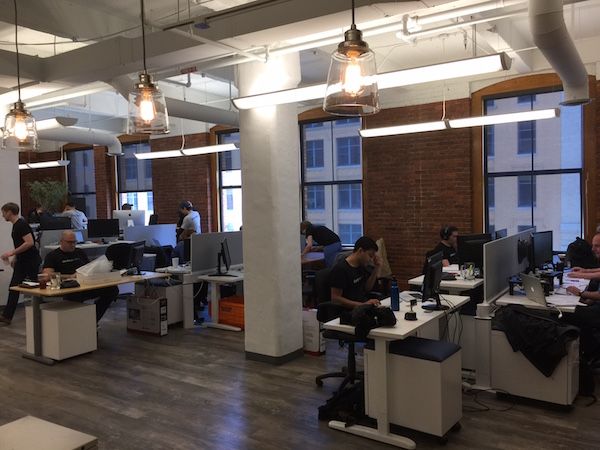I once tried recruiting an employee from a large tech company who had a great background but one noticeable flaw: he'd only worked in big companies. While this is usually a red flag for me, I thought it was worth a Hangout to see if he might have crossover potential. After a few tries reaching him, the response I got via email was this (paraphrased): why would I want to work at your startup when I already work on planet scaling software?
This was a great response for two reasons. First, I knew the team he worked in and he didn’t really work on “planet-scaling software”. He worked in a framework of a service in a product at a big company. While his software was deployed globally, his impact on his company was the equivalent of a pixel on a 4K monitor. But second and more importantly: he viewed his small role in a big company with great prestige. I knew immediately this engineer was not now, nor likely ever, going to be a startup person.
So what is a startup person? Here are ways you know whether you are one:
- Big company people value their association to their company and its brand. Startup people value the impact they’ve had on their business.
- Big company people value job titles and status. Startup people make up their own titles and know status is a byproduct of achievement.
- Big company people do what their teams are directed to do. Startup people do what is required to build a business.
- Big company people talk to product managers. Startup people talk to customers.
- Big company people value compensation. Startup people value opportunity.
- Big company people value process. Startup people value results.
- Big company people work to eliminate risks. Startup people are surrounded on all sides by risks simply by coming to work in the morning.
- Big company people organize cross-functional teams. Startup people are the team.
- Big company people are I-shaped: narrow and deep. Startup people are T-shaped: broad and narrow (usually with an area of depth).
- Big company people get predictable compensation through bonuses and RSUs. Startup people hope for a big payday, but know deep down inside: they'd be doing this without the money.
- Big company people paint by numbers. Startup people paint from a blank canvas.
- Big company people are a small fish in a big pond. Startup people are a big fish in a small but growing pond.
- Big company people execute. Startup people innovate.
- Big company people value recognition and awards. Startup people value success.
- Big company people can hide their lack of performance for months or years. Startup people who don't perform will quickly find themselves working at big companies.
- Big company people have visibility only to their team. Startup people have visibility to their company.
- Big company people take time to analyze the data and make the right decisions based on the available constraints. Startup people make decisions quickly and adapt.
- Big company people are used to having support organizations to help them do things (e.g. IT, HR, legal). Startup people know the support organizations aren’t showing up today and it’s all up to them.
- Big company people take corporate politics into account in decision making. Startup people know the right decision for customers and the business is the always the right decision. Period.
- Big company people can stay within a comfort zone. Startup people vaguely remember they once had a comfort zone.
- Big company people get training programs. Startup people self-train on the job.
- Big company people are predictable. Startup people are adaptable.
- Big company people go to meetings. Startup people get sh** done.
- Big company people view career success as having done a tour of duty with a big brand technology company. Startup people view career success as having built a successful company.
- Big company people talk about starting a company some day, provided the necessary financial backing and support. Startup people are in the trenches learning the skills they'll need to launch their own company.
- Big company people value predictability in their role. Startup people value playing multiple roles.
- Big company people value work life balance. Startup people realize great accomplishments come only from great effort.
- Big company people come to work to do a job. Startup people come to work to build a business.
There is a reason big companies acquire startups. It's called: startup people.
Related Posts: NewCo Boston: A Startup Journey, My Startup Anniversary: 4 Years In Blog Posts
